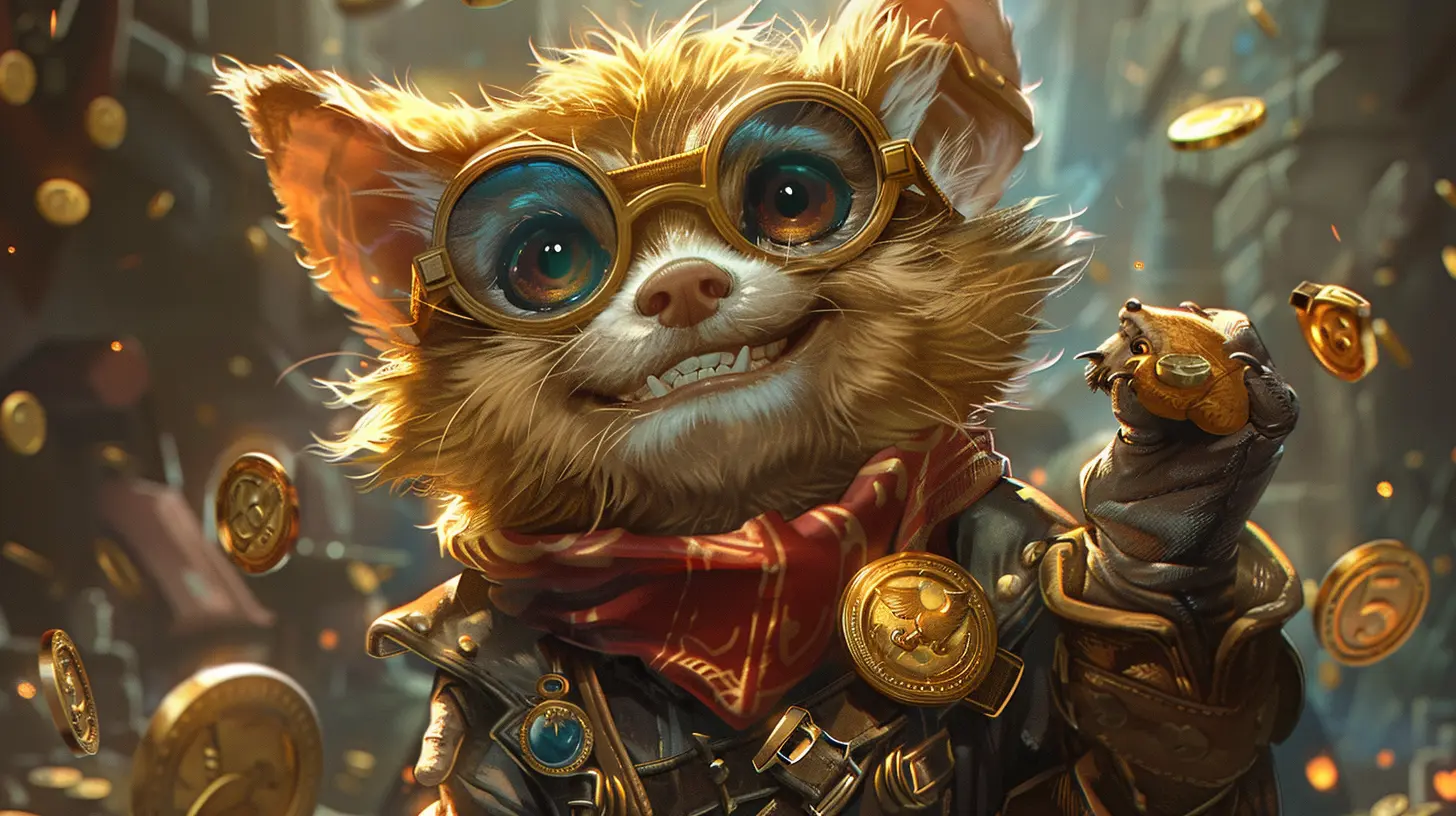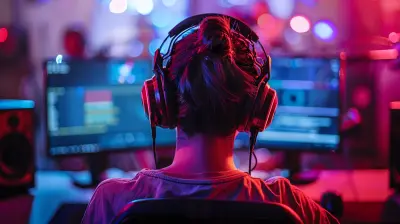Microtransactions in Early Access Games: A New Trend Worth Watching?
16 April 2025
Okay, let’s talk about something that’s been stirring up conversations in the gaming world: microtransactions in early access games. If you’re a gamer or even just dipping your toes into the gaming scene, you’ve probably heard of microtransactions—those tiny little purchases that can either enhance your gameplay experience or leave you feeling like your bank account just got crit-hit. Combine that with early access gaming, where developers literally sell you unfinished games, and you’ve got an interesting (and kinda controversial) recipe.
So, what’s the deal here? Are microtransactions in early access games just a clever strategy from developers, or is it a trend that might spiral out of control like a bad loot box system? Let’s dive in and figure it out together.
What Are Microtransactions and Early Access Games Anyway?
Before we get into the nitty-gritty, let’s make sure we’re all on the same page here. Microtransactions are basically add-ons or in-game purchases that players can make. Think character skins, weapon upgrades, cosmetics, or even fun extras like emotes. They’re usually small purchases ranging from a dollar to, well, sometimes ridiculously large amounts if you're not careful.On the flip side, early access games are like developers giving us a backstage pass to an unfinished concert. They let players buy and play the game before it’s officially done. This approach helps the devs test the game, get feedback, squash bugs, and (hopefully) improve everything before the big release.
Now, mix these two together, and you’ve got early access games offering players increasingly more opportunities to spend extra cash within a game that’s not even "complete." Sounds kind of wild, right?
Why Are Microtransactions Making Their Way Into Early Access?
So what gives? Why are microtransactions popping up in early access games in the first place? Well, there’s more to it than developers just trying to grab your money.1. Funding the Development Process
Game development is expensive. We’re talking millions of dollars for some indie teams, and even more for AA or AAA studios. Early access already provides a way for developers to generate income to continue developing the game, but microtransactions take it a step further. They create an extra revenue stream that can make or break a project.For smaller indie studios, especially, this additional funding can mean hiring that one extra artist or programmer they desperately need. That’s kind of a big deal.
2. Testing Monetization Strategies Early
Let’s face it: almost every game today has some form of monetization baked into it, especially multiplayer ones. By introducing microtransactions during early access, developers can test how players react to certain pricing models, what sells well, and what feels "fair." It’s like a monetization test run. If players hate it, developers have time to tweak the system before official launch.3. Building Community Engagement
This one’s sneaky, but smart. Offering cosmetics, skins, or even early access-only items via microtransactions can encourage players to stick around longer and feel invested in the game. Think about it: if you just dropped a few bucks on a fancy sword skin, you’re probably going to use that sword and hang out in the game a little longer, right?Plus, it gets players talking. The more buzz a game generates, the more likely others are to hop on board. It’s a win-win for devs.
The Pros of Microtransactions in Early Access Games
Alright, now that we understand the reasoning, let’s look at the good side of this trend. Believe it or not, there are some upsides to microtransactions in early access.1. Supporting Indie Developers
For indie devs, early access combined with microtransactions can be a lifeline. These teams usually don’t have the massive budgets or marketing machines of big studios, so every extra dollar helps. Supporting an indie game you love through a couple of purchases can contribute to its growth and eventual success.2. Allows Players to Customize Their Experience
Let’s be honest: who doesn’t love rocking a cool skin or ridiculous emote? Microtransactions can let players stand out or personalize their gameplay experience. If it’s purely cosmetic and doesn’t affect gameplay, this can be a fun way to engage with the game without anyone feeling like the system’s unfair. Pay-to-win? Bad. Pay-to-look-cool? Pretty harmless.3. Community Feedback On Monetization
Microtransactions in early access mean developers can get player feedback early and (hopefully) adjust accordingly. If players see something shady, they can speak up before the game officially launches, and devs can course-correct.
The Cons: Why Some Players Aren’t Having It
Of course, it’s not all sunshine and rainbows. There are plenty of players who hate the thought of microtransactions in early access games—and honestly, they’ve got a point.1. Paying for Unfinished Content
One of the biggest criticisms is that early access games are, by definition, unfinished. Some players find it outrageous that they’re being asked to spend even more money on things like skins or weapons for an incomplete game. It’s like buying a car that has no tires and then being told you need to pay extra to customize the rims. Feels kinda off, doesn’t it?2. Could Encourage Greedy Practices
Microtransactions can sometimes bring out the worst in companies. If this trend catches on, it’s possible that more and more developers might lean too heavily into it, prioritizing profits over quality gameplay or fairness. Nobody wants to see their favorite game become a money grab.3. Risks Alienating Players
Not everyone is cool with microtransactions, and adding them to early access games might alienate players who are already wary of paying for an unfinished product. It’s a risky move, one that could turn off dedicated fans before the game even has a chance to launch.Are We Opening Pandora’s Loot Box?
So, is this trend worth watching? Absolutely. Microtransactions in early access games are still relatively new territory, and how it evolves will depend on how developers and players handle it. If devs stick to cosmetic-only options and avoid pay-to-win mechanics, this might not be the worst thing in the world. Heck, it could even help some games flourish.But if this becomes a way for companies to squeeze players dry, especially for games that never even make it out of early access (hello, cash grabs), then it’s going to leave a bad taste in everyone’s mouth. At the end of the day, it’s up to us gamers to call out shady practices and support the studios who do things right.
What Does the Future Hold?
Microtransactions are here to stay. Love ‘em or hate ‘em, they’re too lucrative for developers to ignore. But as they make their way into early access games, we’re stepping into a bit of an ethical gray area. Players are paying for unfinished products and being asked to shell out extra for in-game purchases. That’s a slippery slope if I’ve ever seen one.The thing to watch here is how developers handle this balance. Are they transparent about their plans? Are the microtransactions truly optional, or do they create a frustrating paywall? The answers to these questions will determine if this trend becomes a step forward for gaming or just another misstep.
Final Thoughts
At the end of the day, gaming is all about the experience. Whether you’re slaying dragons, farming turnips, or battling it out in an FPS, the goal is to have fun and escape reality for a little while. Microtransactions have their place, sure, but when they creep into early access games, it’s important to keep a close eye.So, what do you think? Are microtransactions in early access games a clever way to keep things rolling, or do they feel like paying extra for DLC on a game that hasn’t even been finished? Sound off in the comments (or just yell at your screen—we’ve all been there).
all images in this post were generated using AI tools
Category:
MicrotransactionsAuthor:

Lana Johnson
Discussion
rate this article
4 comments
Asher Harris
Great article! Microtransactions in Early Access are definitely a trend to keep an eye on. It's fascinating to see how developers balance monetization with player experience. Looking forward to more discussions!
April 26, 2025 at 5:01 PM

Lana Johnson
Thank you for your feedback! I completely agree—it's a delicate balance, and I'm excited to see how it evolves. Stay tuned for more discussions!
Jacob McClain
Microtransactions in Early Access games are like adding hot sauce to a dish—some love the kick, while others cringe. As developers explore this spicy trend, players must balance their wallets with the potential for a richer gaming experience. Proceed with caution!
April 17, 2025 at 5:07 AM

Lana Johnson
That's a great analogy! Microtransactions can enhance the experience for some but can also deter others. It's crucial for developers to find the right balance.
Georgia Newman
Great insights! I appreciate your perspective on microtransactions in early access games. Thank you!
April 16, 2025 at 4:20 PM

Lana Johnson
Thank you! I'm glad you found the insights valuable.
Zephyrine McAlister
Microtransactions in Early Access blur the line between funding and exploitation. Balancing player investment with fair practices is crucial for sustainable game development.
April 16, 2025 at 3:13 AM

Lana Johnson
I completely agree. Striking the right balance between funding and fair practices is essential to ensure player trust and support sustainable game development.



